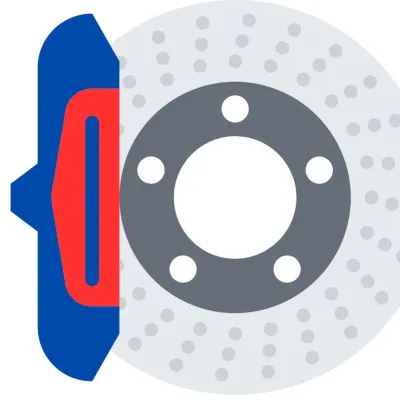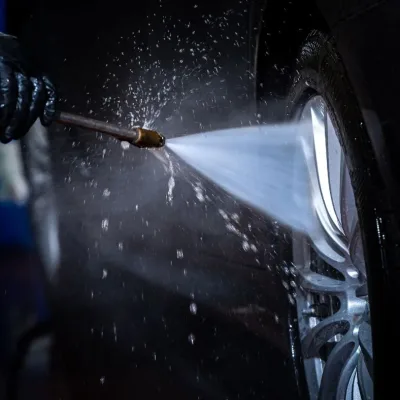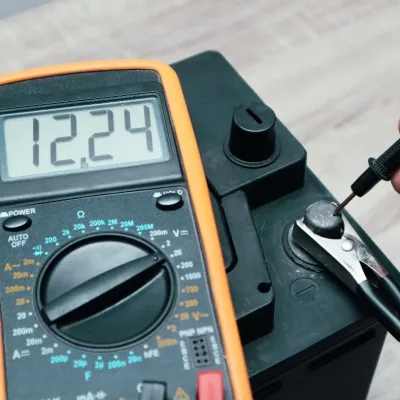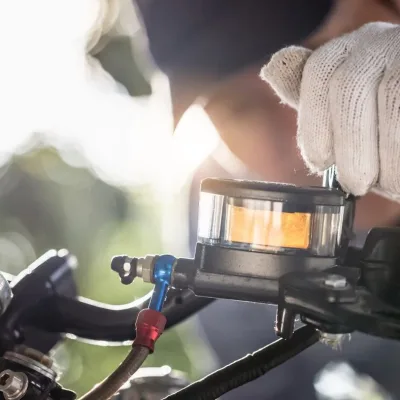Table of Contents
ToggleThe Ultimate Guide to Regular Car Maintenance: Tips from Our Dubai Experts
EMPOWERING THE YOUNG GENERATION with Ultimate Guide to Regular Car Maintenance: Tips from Our Dubai Experts
The Ultimate Guide to Regular Car Maintenance: Tips from Our Dubai Experts
Regular car maintenance is crucial to ensure the longevity and safety of your vehicle. As a car owner in Dubai, it’s important to stay on top of your car’s maintenance needs, especially given the city’s harsh climate and driving conditions. In this ultimate guide, our Dubai experts will share their top tips for regular car maintenance to help you keep your car running smoothly.
For Quick Car Maintenance
Discover efficient tips for swift car maintenance, keeping your vehicle running smoothly. Simplify your upkeep routine with expert advice. Contact our service advisor Now To Continue Reading About The Ultimate Guide to Regular Car Maintenance: Tips from Our Dubai Experts Follow The Steps Below ![]()
1-Check Your Car Tires Regularly:
Tires are one of the most important components of your car, and they need to be in good condition to ensure safe and efficient driving. In Dubai, the extreme heat and sandy conditions can take a toll on your tires, so it’s essential to check them regularly for wear and tear. Make sure to check the tire pressure, tread depth, and overall condition of your tires at least once a month. Contact our service advisor Now

2-Change Your Car Oil Regularly:
Oil is the lifeblood of your car’s engine, and it needs to be changed regularly to ensure optimal performance. In Dubai, where the temperatures can soar, it’s important to change your oil every 3,000 to 5,000 miles, depending on the make and model of your car. Make sure to use the right type of oil for your car, as recommended by the manufacturer. Contact our service advisor Now

3-Check Your Car Brakes Regularly:
Your car’s brakes are crucial for your safety on the road, and they need to be in good working condition at all times. In Dubai, where the roads can be congested and driving conditions can be challenging, it’s essential to check your brakes regularly. Make sure to have your brake pads and rotors inspected at least once a year, and replace them as needed. Contact our service advisor Now

4- Keep Your Car Clean:
Regular car cleaning is not just about aesthetics; it’s also about protecting your car’s paint and interior from damage. In Dubai, where the air is filled with sand and dust, it’s important to wash your car regularly to prevent buildup and damage. Make sure to use a high-quality car wash soap and a soft sponge or cloth to avoid scratches.. Contact our service advisor Now

5- Check Your car Battery Regularly:
Your car’s battery is what powers all the electrical systems in your car, and it needs to be in good condition to ensure reliable starting. In Dubai, where the temperatures can fluctuate widely, it’s important to check your battery regularly. Make sure to have your battery tested at least once a year, and replace it as needed. Contact our service advisor Now

6- Check Your Fluid Levels Regularly:
Your car relies on several fluids to operate, including brake fluid, power steering fluid, transmission fluid, and coolant. Make sure to check these fluid levels regularly and top them up as needed. In Dubai, where the temperatures can be extreme, it’s important to make sure your car’s cooling system is in good working order to prevent overheating. Contact our service advisor Now

7- Replace Your Air Filter Regularly:
Your car’s air filter helps to keep the air inside your car clean and free from contaminants, and it needs to be replaced regularly to ensure optimal performance. In Dubai, where the air is filled with sand and dust, it’s important to replace your air filter every 12,000 to 15,000 miles, depending on the make and model of your car. Contact our service advisor Now

7- Conclusion:
Regular car maintenance is essential for the longevity and safety of your vehicle, and it’s especially important in Dubai’s challenging driving conditions. By following these tips from our Dubai experts, you can ensure that your car stays in good condition and runs smoothly for years to come. Remember to check your tires, oil, brakes, battery, fluid levels, and air filter regularly, and don’t hesitate to take your car to a professional mechanic if you notice any issues. With proper maintenance, you can enjoy safe and reliable driving in Dubai for years to come… Contact our service advisor Now

Additional tips for maintaining a car in extreme heat and sandy conditions, such as those found in Dubai:
Here are some additional tips for maintaining a car in extreme heat and sandy conditions, such as those found in Dubai:
- Protect Your Car’s Exterior:
The harsh sun and sand in Dubai can cause damage to your car’s exterior, such as fading paint, rust, and dents. To protect your car’s exterior, consider using a car cover or parking your car in a shaded area whenever possible. Additionally, washing your car regularly can help remove sand and other debris that can scratch or damage the paint.
- Keep Your Interior Cool:
The extreme heat in Dubai can make your car’s interior unbearably hot, which can be uncomfortable and even dangerous. To keep your car’s interior cool, consider using a sunshade or windshield cover to block the sun’s rays. Additionally, using a dashboard cover can help protect your car’s interior from fading and cracking.
- Check Your Cooling System:
Your car’s cooling system is crucial for keeping your engine from overheating in the extreme heat. Make sure to check your coolant levels regularly and top them up as needed. Additionally, consider having your cooling system inspected by a professional mechanic to ensure that it’s in good working order.
- Check Your Belts and Hoses:
The extreme heat and sand in Dubai can cause wear and tear on your car’s belts and hoses. Make sure to check them regularly for any signs of damage or wear, and replace them as needed. Additionally, consider using a protective coating on your belts and hoses to help prevent damage from sand and other debris.
- Check Your Air Conditioning System:
Your car’s air conditioning system is essential for keeping you cool in the extreme heat. Make sure to have your air conditioning system inspected by a professional mechanic to ensure that it’s in good working order. Additionally, consider using a protective coating on your car’s air conditioning system to help prevent damage from sand and other debris.
- Check Your Wipers and Washer Fluid:
The sand and dust in Dubai can quickly wear down your car’s wipers and clog your washer fluid system. Make sure to check your wipers and washer fluid regularly and replace them as needed. Additionally, consider using a washer fluid designed for extreme conditions to help prevent clogging and buildup.
- Check Your Tire Pressure:
The extreme heat in Dubai can cause your tires to expand and lose pressure, which can affect your car’s handling and fuel efficiency. Make sure to check your tire pressure regularly and inflate them to the recommended level. Additionally, consider using tires designed for extreme conditions to help prevent blowouts and other tire-related issues.
- Check Your Battery:
The extreme heat and sand in Dubai can cause damage to your car’s battery, which can lead to issues with starting and electrical systems. Make sure to have your battery inspected by a professional mechanic to ensure that it’s in good working order. Additionally, consider using a protective coating on your battery to help prevent damage from sand and other debris.
- Check Your Fuel System:
The extreme heat and sand in Dubai can cause damage to your car’s fuel system, which can lead to issues with fuel efficiency and engine performance. Make sure to have your fuel system inspected by a professional mechanic to ensure that it’s in good working order. Additionally, consider using a fuel additive designed for extreme conditions to help prevent damage and maintain optimal performance.
Overall, maintaining a car in extreme heat and sandy conditions requires regular checks and maintenance to ensure that all systems are in good working order. By following these tips, you can help protect your car and ensure safe and reliable driving in Dubai’s challenging conditions.
The frequency with which you should have your car inspected by a professional mechanic depends on several factors, including the age and make of your car, your driving habits, and the driving conditions in Dubai. However, as a general rule of thumb, it’s a good idea to have your car inspected by a professional mechanic at least once a year.
During a professional inspection, a mechanic will check all major systems of your car, including the engine, transmission, brakes, and electrical systems. They will also look for any signs of wear, damage, or potential issues that could lead to major repairs down the line.
If you drive your car frequently or in challenging conditions, such as Dubai’s extreme heat and sandy conditions, you may want to consider having your car inspected more frequently, such as every six months. This can help to ensure that any potential issues are caught and addressed before they become major repairs.
Additionally, if you notice any unusual noises, smells, or performance issues with your car, it’s a good idea to have it inspected by a professional mechanic as soon as possible. This can help to prevent further damage and ensure that your car stays in good working order.
FAQs (Frequently Asked Questions)
Regular Car Maintenance: FAQs Tips from Our Dubai Experts
When it comes to protective coatings for belts, hoses, and batteries, there are several brands and products you can consider. Here are a few recommendations:
CRC Belt Grip – CRC Industries offers a belt grip product designed to improve traction and reduce slippage on all types of belts, including V-belts and flat belts. It provides a protective coating that helps extend belt life.
Permatex Belt Dressing and Conditioner – Permatex manufactures a belt dressing and conditioner that helps prevent slippage, improves traction, and extends belt life. It forms a protective coating on the belt surface.
GUNK Belt Conditioner – GUNK offers a belt conditioner that provides a protective coating to reduce slippage and extend belt life. It’s designed for use on automotive, industrial, and agricultural belts.
Armor All Battery Protector and Sealer – Armor All produces a battery protector and sealer spray that helps prevent corrosion and extends battery life. It forms a protective coating on the battery terminals to resist acid and moisture.
Dielectric Grease – While not a traditional coating, dielectric grease can be applied to battery terminals and connectors to protect against corrosion and ensure proper electrical conductivity. Brands like Permatex and CRC offer dielectric grease products.
Before applying any coating or treatment to belts, hoses, or batteries, be sure to read and follow the manufacturer’s instructions carefully to ensure proper application and compatibility with the materials involved. Additionally, consider factors such as environmental conditions and intended usage when selecting the most suitable product for your needs.
Sure, here are some specific brands and products for protective coatings on belts, hoses, and batteries that are highly rated and recommended:
Belts:
Aegis Chemicals – Blue Guard Protectant: This is a water-based protectant that can be sprayed onto your car’s belts to help prevent wear and tear from heat, sand, and debris. It forms a barrier that repels dirt, dust, and other contaminants, and it’s safe for use on all types of rubber and plastic materials.
CRC Industries – Heavy Duty Rubber Protectant: This is a silicone-based protectant that can be used on all types of rubber and plastic materials, including belts. It helps to prevent cracking, splitting, and other types of damage caused by heat, sun, and debris. It’s easy to apply and provides long-lasting protection.
Hoses:
Permatex – High-Temperature Silicone Grease: This is a high-temperature silicone grease that can be used on all types of hoses, including rubber and plastic. It helps to prevent leaks and wear and tear caused by heat, vibration, and other types of stress. It’s easy to apply and provides long-lasting protection.
3M – High-Temperature Rubber Coating: This is a rubber coating that can be used on all types of rubber hoses to provide extra protection against heat, sun, and debris. It forms a barrier that repels dirt, dust, and other contaminants, and it’s easy to apply with a brush or spray gun.
Batteries:
AMSOIL – Heavy-Duty Metal Protector: This is a protective coating that can be used on all types of metal surfaces, including batteries. It helps to prevent corrosion, rust, and other types of damage caused by moisture, salt, and debris. It’s easy to apply and provides long-lasting protection.
CRC Industries – Battery Terminal Protector: This is a protective coating that can be used on battery terminals to prevent corrosion and buildup. It forms a barrier that repels moisture, salt, and other types of contaminants, and it’s easy to apply with a brush or spray gun.
When choosing a protective coating for your car’s belts, hoses, and batteries, be sure to read the product labels carefully and follow the manufacturer’s instructions for use. Additionally, consider the specific needs of your car and driving conditions in Dubai when selecting a product.
Yes, here are some specific instructions and precautions to keep in mind when applying protective coatings to your car’s belts, hoses, and batteries:
- Belts:
- Make sure the belts are clean and dry before applying the protectant.
- Follow the manufacturer’s instructions for application, which may include shaking the can or bottle before use.
- Apply the protectant evenly and thoroughly, covering all surfaces of the belt.
- Allow the protectant to dry completely before starting the engine or driving the car.
- Avoid over-applying the protectant, as this can cause it to drip or run off the belt and create a mess.
- Do not apply the protectant while the engine is running or hot, as this can cause it to evaporate too quickly and reduce its effectiveness.
- Hoses:
- Make sure the hoses are clean and dry before applying the protectant.
- Follow the manufacturer’s instructions for application, which may include shaking the can or bottle before use.
- Apply the protectant evenly and thoroughly, covering all surfaces of the hose.
- Avoid over-applying the protectant, as this can cause it to drip or run off the hose and create a mess.
- Do not apply the protectant while the engine is running or hot, as this can cause it to evaporate too quickly and reduce its effectiveness.
- Inspect the hoses regularly for leaks, cracks, or other damage, and replace them as needed.
- Batteries:
- Make sure the battery terminals are clean and dry before applying the protectant.
- Follow the manufacturer’s instructions for application, which may include shaking the can or bottle before use.
- Apply the protectant evenly and thoroughly, covering all surfaces of the battery terminals.
- Avoid over-applying the protectant, as this can cause it to drip or run off the battery and create a mess.
- Do not apply the protectant while the engine is running or hot, as this can cause it to evaporate too quickly and reduce its effectiveness.
- Inspect the battery regularly for corrosion, leaks, or other damage, and replace it as needed.
Overall, it’s important to follow the manufacturer’s instructions carefully when applying protective coatings to your car’s belts, hoses, and batteries. Be sure to use the right product for the job, and avoid over-applying or applying it incorrectly, as this can reduce its effectiveness or cause damage to your car’s components. Regular inspections and maintenance can also help ensure that your car stays in good working order in Dubai’s extreme heat and sandy conditions.
Here are some common signs of damage or wear that you should look out for in belts, hoses, and batteries:
- Belts:
- Cracks, splits, or tears in the belt material
- Glazing or shininess on the surface of the belt
- Squeaking or grinding noises when the engine is running
- Fraying or peeling of the belt material
- Visible wear on the belt ribs or grooves
- Belt tension that feels too loose or too tight
- Hoses:
- Cracks, leaks, or bulges in the hose material
- Soft or spongy areas in the hose
- Abrasive or worn spots on the hose surface
- Coolant or fluid leaks around the hose connections
- Hoses that feel brittle or hard to the touch
- Hoses that are kinked, twisted, or otherwise damaged
- Batteries:
- Corrosion or buildup on the battery terminals
- Diminished cranking power or slow engine starts
- A swollen or bloated battery case
- A low or dead battery indicator on the dashboard
- A battery that’s more than three years old
- A battery that’s leaking electrolyte or other fluids
If you notice any of these signs of damage or wear in your car’s belts, hoses, or batteries, it’s important to have them inspected and replaced as soon as possible to prevent further damage or safety issues. Regular inspections and maintenance can help ensure that your car stays in good working order in Dubai’s extreme heat and sandy conditions.

Here are some other regular maintenance tasks that you should perform to keep your car in good condition:
- Check and change the oil regularly: Oil is the lifeblood of your car’s engine, and it needs to be changed regularly to prevent engine damage. Check your car’s owner’s manual to find out how often you should change the oil and what type of oil is recommended.
- Check and replace the air filter: Your car’s air filter helps to keep the engine clean and running smoothly. Check the filter regularly and replace it as needed to ensure optimal performance.
- Check and replace the spark plugs: Spark plugs are essential for your car’s ignition system, and they need to be replaced regularly to ensure optimal performance. Check your car’s owner’s manual to find out how often you should replace the spark plugs.
- Check and replace the brake pads: Brake pads are essential for your car’s braking system, and they need to be replaced regularly to ensure optimal performance. Check your car’s owner’s manual to find out how often you should replace the brake pads.
- Check and replace the fuel filter: The fuel filter helps to keep your car’s fuel system clean and running smoothly. Check the filter regularly and replace it as needed to ensure optimal performance.
- Check and inflate the tires: Properly inflated tires are essential for your car’s handling, fuel efficiency, and safety. Check your car’s owner’s manual to find out the recommended tire pressure, and check the tires regularly to ensure that they are properly inflated.
- Clean the car interior and exterior: Regular cleaning can help to prevent damage to your car’s interior and exterior, and it can also help to improve its appearance and longevity. Consider using a car cover to protect your car’s exterior from the harsh sun and sand in Dubai.
- Regular inspections and maintenance: Regular inspections and maintenance can help to ensure that your car stays in good working order and prevents major repairs. Consider having your car inspected by a professional mechanic at least once a year to ensure that all systems are functioning properly.
By performing these regular maintenance tasks, you can help to ensure that your car stays in good condition and runs smoothly in Dubai’s extreme heat and sandy conditions.
Here are some signs that indicate you should have your car inspected immediately:
Unusual noises: If you hear any unusual noises, such as grinding, squeaking, or knocking, it could indicate a problem with your car’s brakes, engine, or transmission.
Fluid leaks: If you notice any fluid leaks, such as coolant, oil, or brake fluid, it could indicate a problem with your car’s cooling system, engine, or brakes.
Performance issues: If your car is not performing as it should, such as difficulty starting, stalling, or hesitating, it could indicate a problem with your car’s engine, fuel system, or electrical system.
Warning lights: If any warning lights appear on your car’s dashboard, such as the check engine light or the brake light, it could indicate a problem with your car’s engine, brakes, or other major systems.
Vibrations or shakes: If you feel any vibrations or shakes while driving, it could indicate a problem with your car’s tires, suspension, or steering system.
Pulling or drifting: If your car is pulling or drifting to one side while driving, it could indicate a problem with your car’s alignment, brakes, or steering system.
Smells: If you notice any unusual smells, such as burning, gasoline, or oil, it could indicate a problem with your car’s engine, exhaust system, or other major systems.
If you notice any of these signs, it’s important to have your car inspected immediately by a professional mechanic. Ignoring these signs could lead to further damage and more expensive repairs down the line. By addressing these issues promptly, you can help to ensure that your car stays in good working order and prevent major repairs.
The Ultimate Guide to Regular Car Maintenance: Tips from Our Dubai Experts
EMPOWERING THE YOUNG GENERATION with Ultimate Guide to Regular Car Maintenance: Tips from Our Dubai Experts
